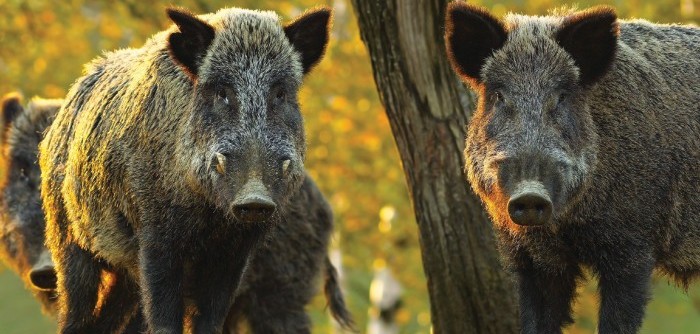African swine fever (ASF) has been confirmed in a second German state, Saxony, in the district of Görlitz, close to the Polish border.
By November 1, the Friedrich Loeffler Institute had confirmed 123 cases, all in wild boar. Domestic pig herds in Germany are still free of ASF.
Until this weekend, all cases had been confirmed in Brandenburg, mainly within two core areas. But the virus has now been confirmed in a wild boar killed while hunting in the neighbouring state of Saxony, the Federal Ministry of Agriculture (BMEL) announced on Saturday.
The site is located near the Polish border in Upper Lusatia, Görlitz district. According to press reports, the animal was shot in the course of a hunt and showed no symptoms of the disease. But routine screened for ASF by the FLI now confirmed the virus.
Measures are now being implemented in the affected region, including new protection zones. The BMEL said it was in close contact with the Saxon State Ministry for Social Affairs and Social Cohesion (SMS).
The central animal epidemic crisis team with representatives from the federal and state governments will be convened again under the direction of the State Secretary in the BMEL, Beate Kasch, German pig industry body ISN reported.
Brandenburg spread
The virus has also been found to be spreading further with Brandenburg. Last week, as the FLI confirmed 11 new cases, it revealed that one was found near Friedland/Klein Briesen (LOS), outside the first core area in the Oder-Spree district.
A new core area has been designated around the site, initially fenced off with an electric fence before a solid fence is built, while the Federal Armed Forces are supporting the search for fallen game in the vicinity of the site
The head of the ASF crisis team, State Secretary for Consumers Anna Heyer-Stuffer, said: “This discovery creates a new situation to which we are now reacting immediately.
“The restriction zones will be adapted and expanded accordingly. The Bundeswehr supports the fast and targeted search for fallen game in the vicinity of the site.
“Even if all the outbreaks in Brandenburg so far have fortunately originated from the two previous core areas near the Polish border, it could not be ruled out that the intensive search for fallen game could result in further finds outside these areas. Now it is important to use the tried and tested measures to ensure that the spread of the animal disease is quickly limited .
Export bans
Germany continues to feel the impact of trade bans imposed by at least 10 non-EU countries. Coming on top of COVID-19 plant restrictions, this is causing a big backlog of pigs on German farms.
The German Government has been pushing for a regionalised return to exports to countries like China and Japan, but the discovery that ASF has spread beyond Brandenburg is likely to hinder progress on that front.




